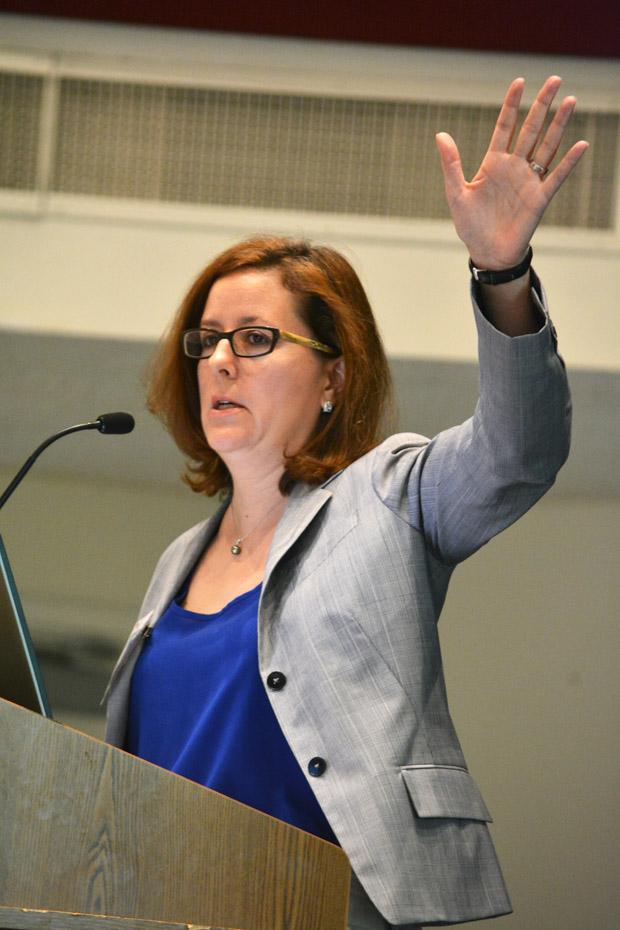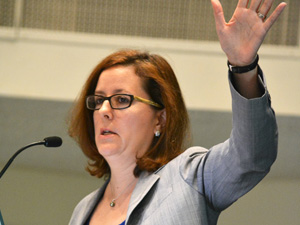
During the Higher Education Symposium students and faculty learned that practical and intellectual skills such as creative thinking, communication and teamwork are vital for success in higher education.
The symposium took place Tuesday and Wednesday at USU Northridge Center and served as an open forum where ideas about higher education were brought together to form a discussion.
Debra Humphreys, the guest speaker and vice president for Policy and Public Engagement at the Association of American Colleges and Universities, discussed the education system and the changes that should be made to improve the quality of education.
In order to properly prepare and overcome challenges that come after graduation, a student must gain knowledge of things such as human cultures and personal and social responsibilities, according to Humphreys.
“I think that what we may have to give students is that mentorship piece. I would encourage students to make sure that they still stay connected to their faculty because technology is a tool,” said Marilyn J. Williams, a professor in the department of education and a current faculty member at the Academic Technology Center . “I think that we are able to learn from each other, and so that learning community, I think, is very important.”
Part of Humphreys’ presentation included select data on student achievement. According to the statistics, only 28 percent of college students surveyed by UCLA claimed that their knowledge of global issues had grown since beginning college.
According to proficiency profile competitive data only eight percent of college seniors tested proficient in critical thinking.
“I want to focus on the fact that not only do we need more college graduates, but we need them to be educated with a quality education,” professor Williams said. “We have both a quality shortfall and a detainment shortfall, and both of them are pretty urgent.”
Educational practices such as internships, writing-intensive courses, learning communities and undergraduate research are just a few of the objectives Humphreys pointed out in terms of creating a better learning environment for students and eventually a higher success rate after graduation.
She said these kinds of practices are those in which students can’t be lurking in the background, and it is crucial that they engage with faculty, peers and the subject matter in order to succeed.
Juana Mora, special assistant to the dean of Chicana/o studies, supported Humphreys’ claim that education has turned into a concern.
“I think she’s right that we just haven’t done that across the board, we don’t provide that to all the students, and that’s one of my concerns. I want to make sure that in the future, every student has that kind of access to those kinds of practices,” Mora said.
With hopes of raising success rates among students and bringing awareness and a resolution to the issue, Humphreys closed with an encouraging message.
“Partly what I see as my job is to create a more informed public who can understand why it actually is worth investing tuition dollars and tax dollars in the quality education,” Mora said. “Ultimately, it is really important that we provide students with knowledge and the ability to put knowledge to use.”






